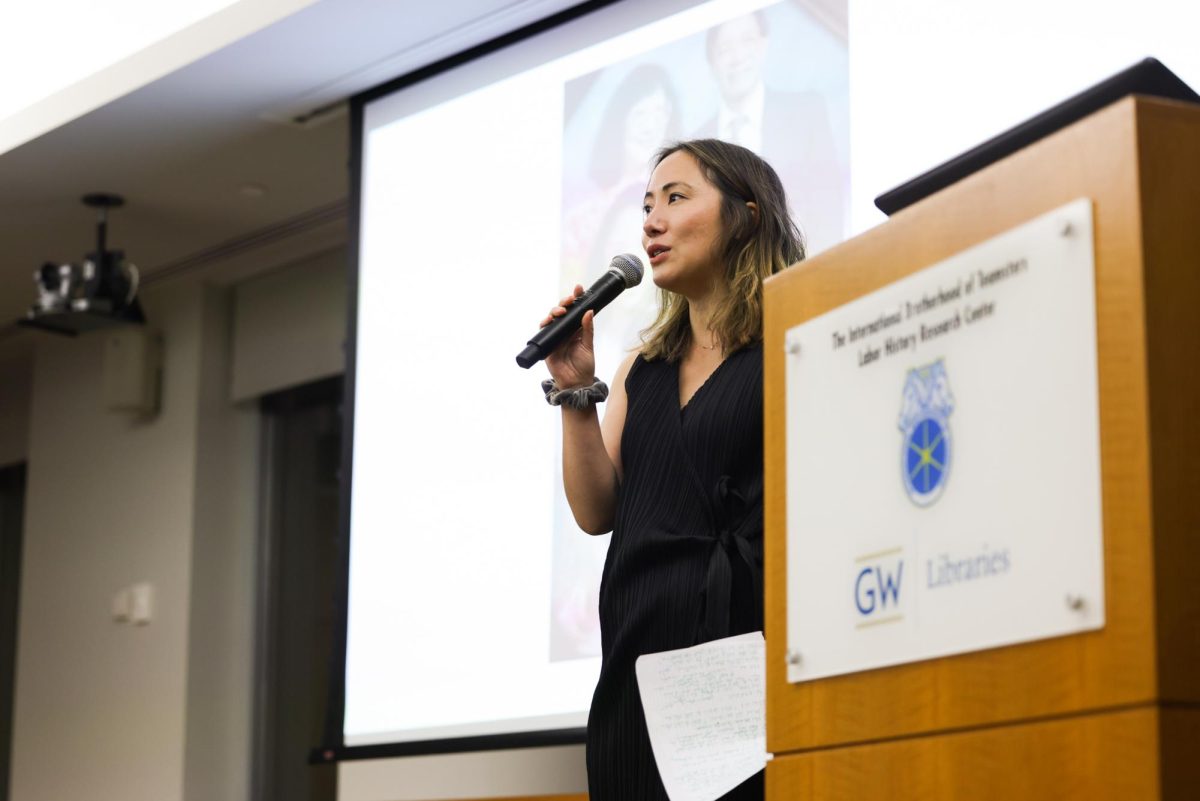One professor wants in on details of how women talk about their sex lives among friends.
Katrina Pariera, an assistant professor of communication, conducted a survey of 617 sexually-active women from 20 to 60 years old on how they communicate with their friends about sex. The study, published last month in the International Journal of Sexual Health, rebuffs the idea that sex-positive conversation always leads to a positive outcome and explores how women talk to their peers about sex.
The Hatchet sat down with Pariera to discuss her study’s findings and her perspective as a critical thinker on the taboo topic of sex.
What inspired you to conduct this study in the first place?
Katrina Pariera: I’ve done some research on parent-child sexual communication. I’ve become more interested in peer communication because it’s this other side of sexual communication, but we know it’s important. So, I was curious about how when we talk to our friends about sex, what kinds of effects that might have on us. I hear a lot of people, including myself, sometimes say people should have these open and honest conversations about sex. But I know it’s not as simple as that, so I wanted to see when we are talking more about sex with our friends, how might that be affecting our sex life?
What were the questions you asked, and what were your findings?
KP: I asked about two different types of communication. There’s a type of communication that’s about providing emotional support to each other, encouraging each other, boosting each other up, venting. Then there’s communication that’s more sort of resource-support, information-sharing, giving tips and advice. I wanted to see if one of those types of communication would be more strongly associated with different sexual health outcomes. I also wanted to see which one they were engaging in more.
What I found was that they’re doing both of those types of communication, but mostly talking about sex in terms of emotional support rather than resource sharing.
Did you have any challenges or did anything surprise you about the findings?
KP: I didn’t find any real correlation with safer sex and communication, and I was surprised at first, but when I thought about it more, there’s a ton of research trying to get people to practice safer sex – there has been for decades – and it’s challenging even when we give people knowledge about safer sex practice. They know it’s important and know the risks, it’s just hard to get that behavior change.
What might be the negative factors in sex-positive communication?
KP: I teach a class in sexual communication where we deconstruct that idea. The sex-positive messages are geared at encouraging women to be more sexual, which in some ways can be a great thing, but in some ways creates new pressure, saying, ‘Well don’t be a prude. If you’re a modern sex-positive woman then you should be doing X, Y and Z.’
Another study I haven’t published looks more about the details of this communication. People talk about other people’s hookups and other people’s sex lives, they talk about their sexual escapades. There’s not as much conversation about the less fun sides about sex, problems that have arisen or safety. They’re talking about the fun, the adventurous and the risque, and that can lead to more pressure to yourself being more sexual, to line up with the norms.
Your sample of women ranged from 20 to 60 years of age. How significant is age when speaking about the impact of sex-positive discourse?
KP: I think that a lot of college students are very sex-positive, but only 30 to 40 percent of my population had any college experience, and I really just wanted a big snapshot. It’s not that the experience of being a 20-year-old is night-and-day from the experience of a 30-year-old or 40-year-old. There’s going to be age differences, but studies over the last few decades still show that we still have pretty conservative scripts for women.
Even college students still really emphasize not being too promiscuous and still emphasize responsibility for women more so than men. While age is definitely a major factor, it’s definitely surprising that it’s not more of a factor.
Are there differences between sexual conversations between men and conversations between women?
KP: Women have these conflicting scripts: be conservative, but be sexual. And men don’t have that so much, but they have more pressure to be sexual and to have sexual conquests. They might not talk as much about sex as women do, which is I think surprising to some people, some studies have found that women do talk more about sex than men.
Do you have ideas on how our communication can positively improve the way people practice sex?
KP: I hate to blame the media, but I think we would benefit from better examples of this in TV and movies. People need scripts and they need examples to talk about sex with their sexual partners, with their friends, with their parents. It’s not the kind of thing we learn in school, so we learn a lot of it by seeing how it’s done on television.
Another thing is, GW has amazing peer educators. There’s lots of research showing that trained peer educators are super effective at disseminating sexual health information. There’s potential there because when we’re talking to our peers about sex, we’re being peer educators inadvertently.




